It’s about halfway through the year. How are the reading goals you set in January going? Every year, Book Riot puts out the Read Harder Challenge: a series of prompts to encourage you to try new things with your reading. There are 24 in total, with the idea that you’d complete about two a month.
In Our Queerest Shelves, Book Riot’s LGBTQ books newsletter, I decided to see if we could do this challenge on hard mode: all LGBTQ books! I’m happy to say that I succeeded — and only had to cheat a tiny bit here and there. This post is adapted from those newsletters.
For every challenge, I’ve provided five options of books you could pick up to complete the challenge, highlighting one or two titles. Obviously, we’re halfway through the year now, so it might be a little ambitious to do the whole challenge, but for the queer power readers out there: have at it! For the rest of us, hopefully you find a few challenges here to pick out for your Pride TBR or to read for the rest of the year.
Let’s jump into the challenges! Each of these from the original 2022 Read Harder Challenge, but fulfilled with only queer books.
1) Read a biography of an author you admire.
Of course, I can’t tell you which authors you admire, but I can give you some examples of great LGBTQ author biographies! This one proved a little tricky: even some of the best queer authors out there don’t have any biographies published about them. Someone get on that. Also, if you search for biographies, you’ll get a thousand memoirs for every actual biography. Sigh.
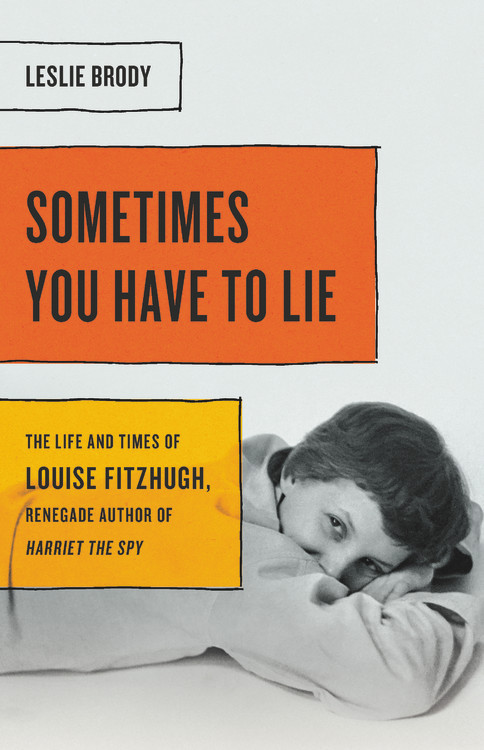
Sometimes You Have to Lie: The Life and Times of Louise Fitzhugh, Renegade Author of Harriet the Spy by Leslie Brody
Many, many queer kids read Harriet the Spy and felt a spark of recognition, and that’s no accident, because the author was a lesbian. This biography shows how Fitzhugh struggled in a society that didn’t accept queer people, and how her work was quietly subversive.
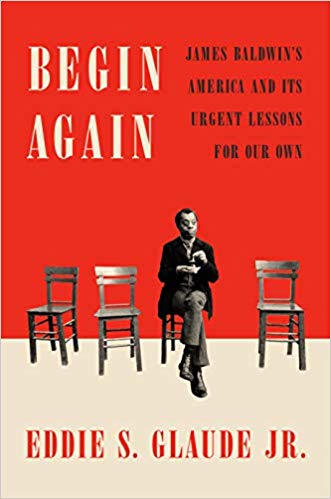
Begin Again: James Baldwin’s America and Its Urgent Lessons for Our Own by Eddie S. Glaude Jr.
This is a new release that just came out in 2021. It blends together a biography of James Baldwin with how his political commentary still applies to the U.S. today. It positions the election of Trump and the rise of white nationalism as not an aberration, but a continuation of patterns that Baldwin had already been speaking out about.
More LBGTQ author biographies:
2) Read a book set in a bookstore.
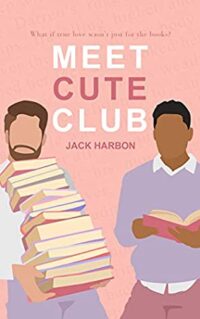
Meet Cute Club by Jack Harbon
Do I really need to say anything more than M/M bookstore romance? Just in case I do, this follows Jordan, who runs a romance book club in the bookstore he works at. He’s irritated by new employee Rex calling his favorite genre “grandma books,” and is confused when Rex shows up for Meet Cute Club. He needs the numbers, but Rex will have to convince him that he isn’t just trolling — and what better way than by saving the club?
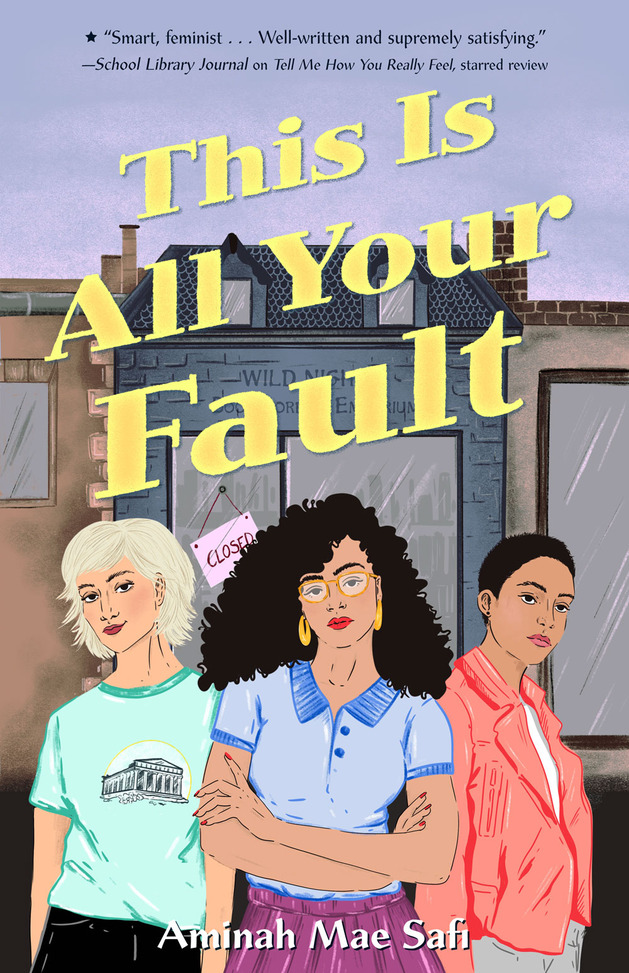
This Is All Your Fault by Aminah Mae Safi
This is a YA retelling of Empire Records! Instead of a record store, the three main characters (one of whom is queer) work at an independent bookstore that they discover is closing. They have some meltdowns and hatch some wacky schemes to make money in their attempts to save a community space they all love.
More queer books set in bookstores:
- Mooncakes by Suzanne Walker and Wendy Xu
- Who We Could Be by Chelsea Cameron
- Book of Dreams by Kevin Craig (out September 13, 2022)
3. Read any book from the Women’s Prize shortlist/longlist/winner list.
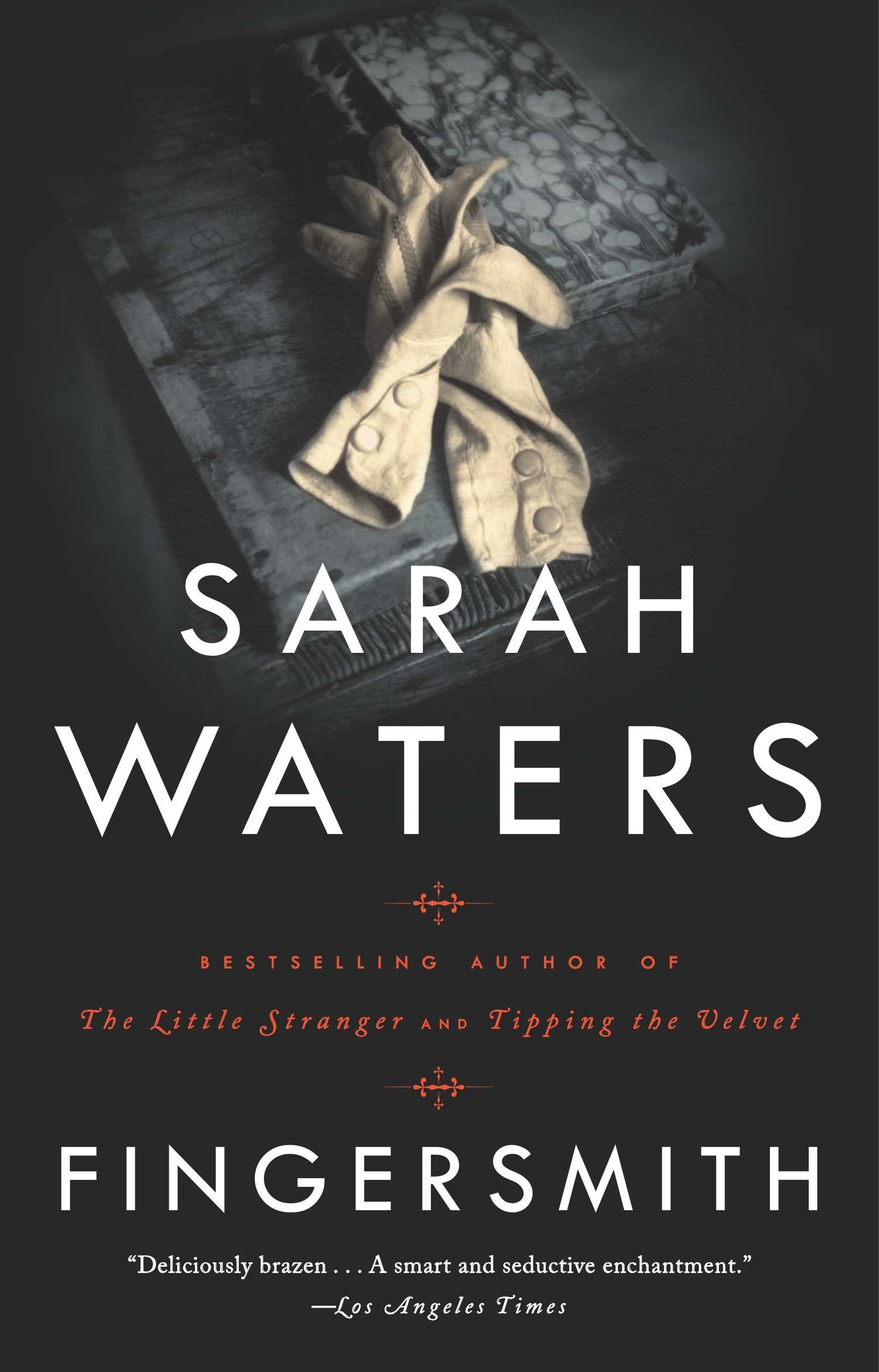
Fingersmith by Sarah Waters (2002 Shortlist)
I can’t pass a chance to talk about one of my favourite books of all time. This is an intricately plotted story about Sue, a thief posing as a maid in a scheme to convince her employer, Maude, to marry Sue’s accomplice to get Maude’s fortune. But then she falls for the mark, and everything gets very messy. You could also pick up a few of Sarah Waters’s other books for this task: The Paying Guests (2015 shortlist) and The Night Watch (2006 shortlist).
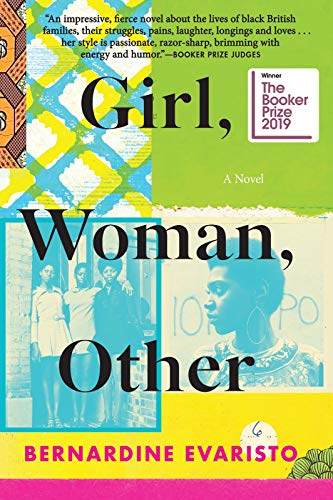
Girl, Woman, Other by Bernardine Evaristo (2020 Shortlist)
This title was shortlisted for the Women’s Prize, but won the Booker Prize! It follows 12 Black British point of view characters: 11 are women, one is nonbinary. There is also a lesbian main character. It’s an examination of what living as a Black women in Britain is like today, seen through many different lenses. It’s hard to overstate the praise this novel has gotten, having been called “unforgettable” by Roxane Gay and “Godlike in its scope and insight” by the Washington Post.
More queer books from the Women’s Prize lists:
3. Read a book in any genre by a POC that’s about joy and not trauma.
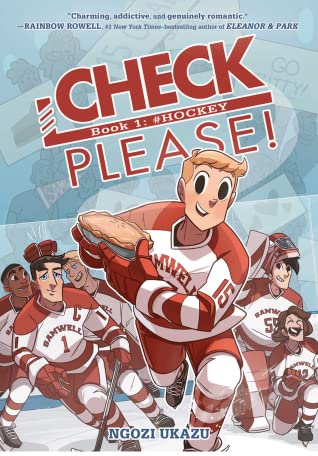
Check, Please! by Ngozi Ukazu
It’s hard to think of a more joyful queer series than Check, Please!, which follows Eric, a freshman on the university hockey team. He’s finding going from his high school team to this one to be a difficult transition (which he copes with by baking). Even more distracting than having to deal with checking is Jack, the swoony and moody team captain.
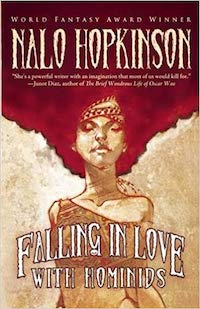
Falling In Love With Hominids by Nalo Hopkinson
Nalo Hopkinson is one of my favourite authors, but this book is in a class of its own. As soon as I finished reading it (from the library), I immediately bought two copies: one for my permanent collection and one to give to a friend. It’s a collection of fantasy short stories that are hopeful and strange and mesmerizing. The novella has sapphic main characters, and one of the short stories is about a M/M couple trying to track down their missing fire-breathing chicken. It’s a delight.
More joyful queer books by authors of color:
5) Read an anthology featuring diverse voices.
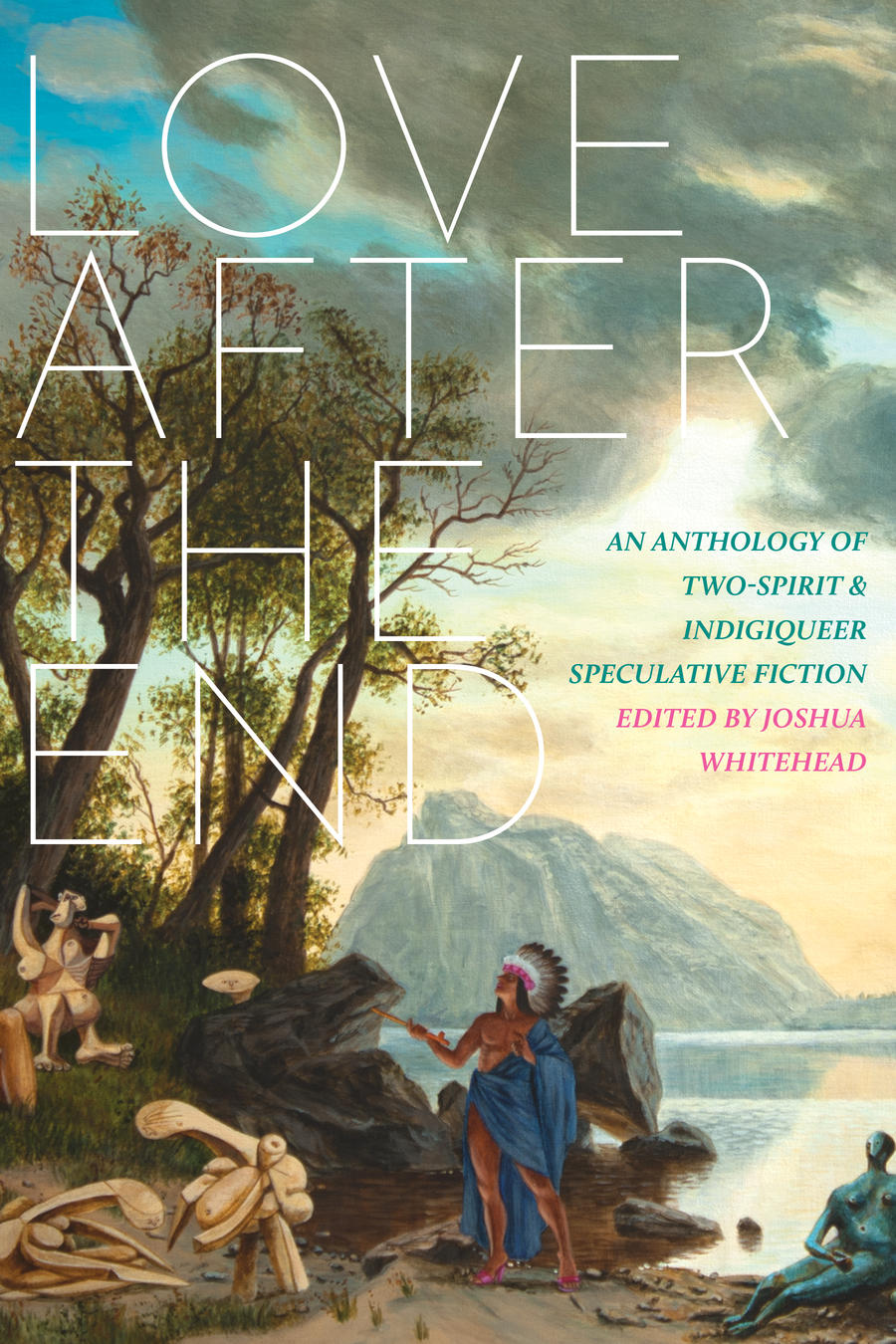
Love after the End: An Anthology of Two-Spirit and Indigiqueer Speculative Fiction edited by Joshua Whitehead
This book blew me away from the introduction alone. It made me think about how much of both sci-fi and fantasy are rooted in colonialism, and how different those same stories are (colonizing another planet, fleeing a dying Earth) from an Indigenous perspective. Plus, there’s a gay love story with a cybernetic rat, so…
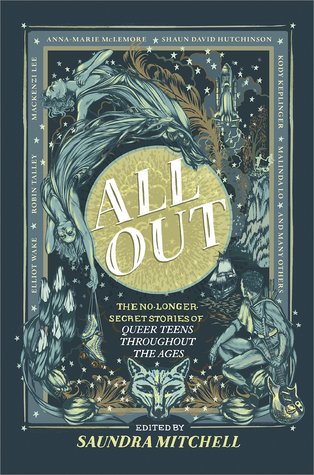
All Out: The No-Longer-Secret Stories of Queer Teens Throughout The Ages edited by Saundra Mitchell
If I could recommend just one book every high school library or teen GSA should have, I think it would be this one. They’re historical fiction short stories with a range of queer identities represented, and they all have happy endings. I found myself thinking about how queer people have to reclaim the past, because so much of our history has been erased. There’s also Out Now: Queer We Go Again! and, just out this month, Out There: Into Queer New Yonder.
More queer and diverse anthologies:
6) Read a nonfiction YA comic.
There are more queer graphic YA memoirs I could list, but unfortunately, I wasn’t able to find any examples by authors of color in this category. It’s a shame, because YA graphic memoirs are a great way to reach new teen audiences, and I’d love to see something like George M. Johnson’s All Boys Aren’t Blue available in a graphic format as well.
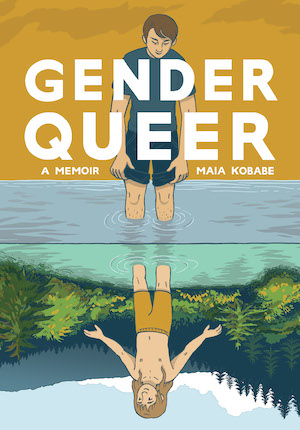
Gender Queer by Maia Kobabe
If you want to read banned and censored books, this is the book to read this year. I’ve found it puzzling that the book that has drawn the most vitriol from right wing book banners for “sexualizing” children is in fact a memoir partly about Kobabe’s journey to realizing e is asexual. This is a sensitive, thoughtful portrayal of what it’s like to grow up nonbinary, and it’s an important story for teens to have access to, considering how little representation there is for nonbinary (and asexual) people in media. If you have a moment, consider clicking through to the Amazon reviews and marking some of the many positive reviews as helpful, to make that front page a little more accurate.
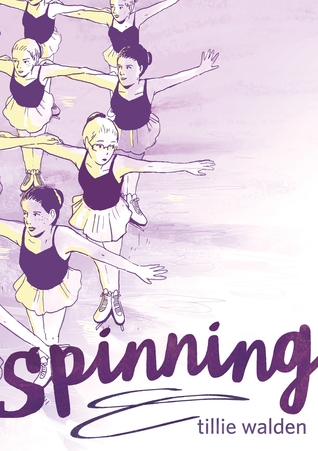
Spinning by Tillie Walden
This is the story of Walden’s decade of having her life dominated by figure skating. After she switched schools, found a new hobby, and began to fall for a girl, she began questioning what she wanted for her future and whether figure skating fit into it. This is a story about letting go of something once central to your identity, and the simultaneous terror and freedom of that.
More queer graphic nonfiction for teens:
7) Read a romance where at least one of the protagonists is over 40.
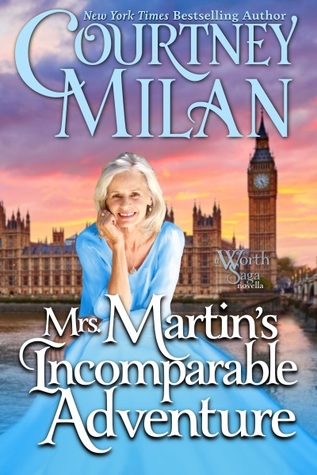
Mrs. Martin’s Incomparable Adventure by Courtney Milan
Sure, there are some great queer romances with main characters in their 40s, but why not pick up a book with an age demographic that doesn’t often get a starring role in these series? This is a historical romance with a 73-year-old main character and a 69-year-old love interest, and they plot their revenge against Bertrice’s Terrible Nephew.
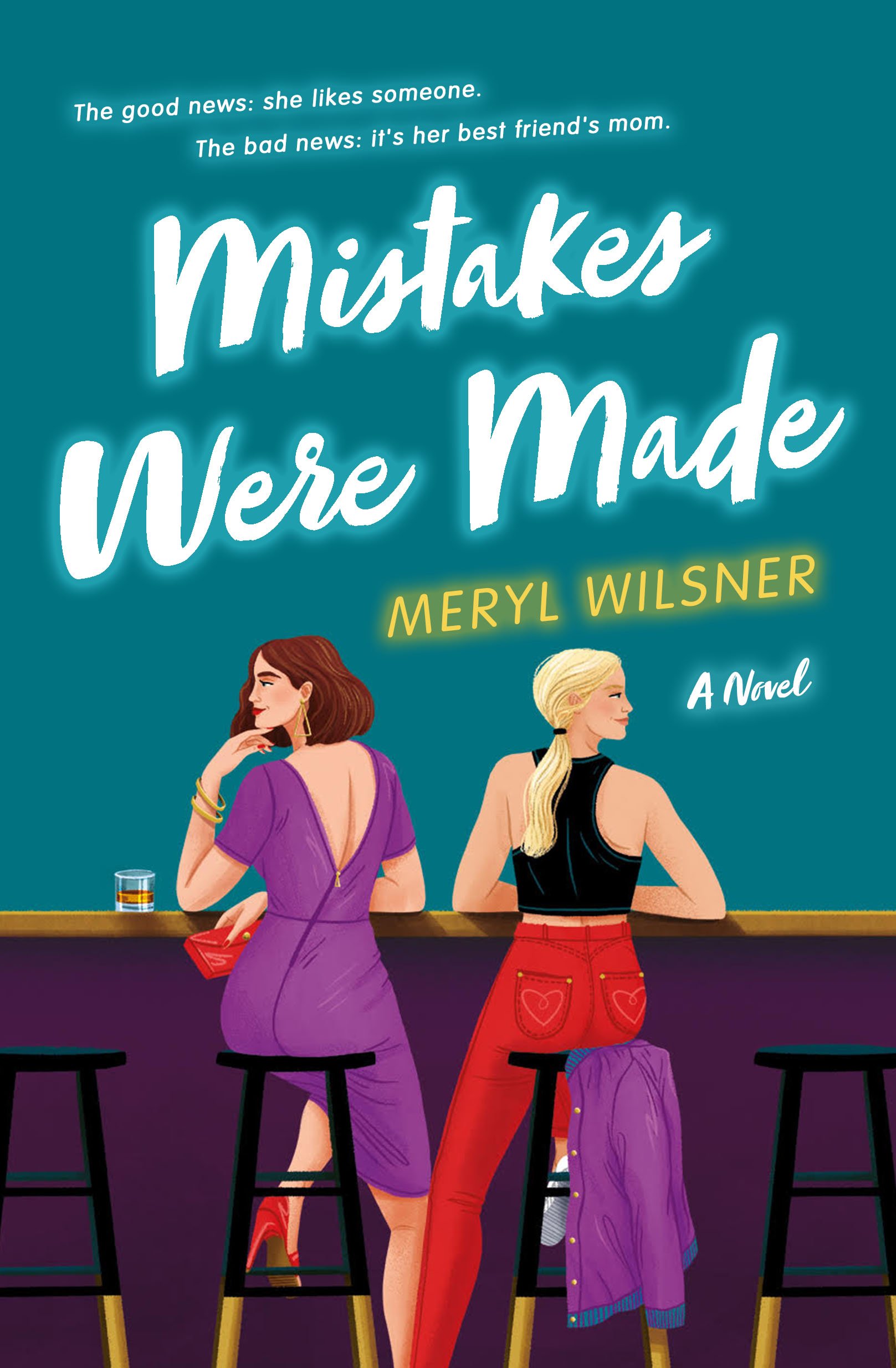
Mistakes Were Made by Meryl Wilsner (October 11, 2022)
I know this doesn’t come out for a while, but it was impossible to answer this prompt without mentioning “the MILF book,” as TikTok and Twitter have dubbed it. When college senior Cassie goes to meet her best friend’s mom, Erin, during Family Weekend, she isn’t expecting to run into her steamy one night stand from last night. What’s worse is that none of that chemistry has abated, despite how much of a bad idea this is, which leads to the two of them sneaking around.
More queer romances with main characters over 40:
8) Read a classic written by a POC.
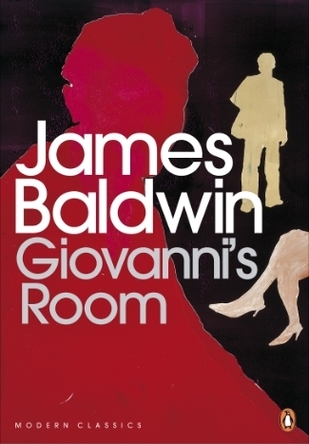
Giovanni’s Room by James Baldwin
This likely goes without saying, but Giovanni’s Room is a must-read for any queer book aficionado. Published in 1956, it follows David, a young American living in Paris. When his girlfriend leaves for Spain, he begins an affair with Giovanni, a man he met in a gay bar. James Baldwin is an incredibly influential author, and this is a great place to start with his work.
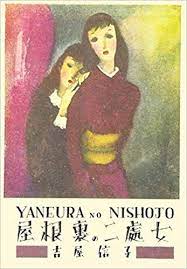
Two Virgins in the Attic by Nobuko Yoshiya
Nobuko Yoshiya, on the other hand, may be a name you’re not familiar with, but she is a fascinating historical figure. She wrote novels that would go on to inspire the Class S and shojo genres. In 1919, she wrote Two Virgins in the Attic, which was exceptional because the two girls not only were in a relationship in school (something that could be dismissed as childish/play-acting a relationship), but also stayed together after graduating. She wrote many stories about relationships between girls, and she was one of the most successful and widely read writers of her time. She lived with her partner for 50 years, and legally adopted her so they could have the same rights as a couple. While sadly Two Virgins in the Attic isn’t available in English, one of her short stories, “Yellow Rose” is available as an ebook.
More queer classics written by authors of color:
9) Read the book that’s been on your TBR the longest.
This one I don’t have to give any recommendations for. Just read the queer book that’s been on your TBR the longest! For my physical TBR, that’s embarrassingly quite a few books I’ve had for over ten years, including some Rita Mae Brown and Ann-Marie Macdonald titles that I’ve packed and unpacked through many moves… I’ll get to them any day now.
10) Read a political thriller by a marginalized author (BIPOC, or LGBTQIA+).
This has been the hardest category for me to crack so far. So I’m including Ace of Spades because for one thing, school politics is still politics, and also because it deals with bigger political/imbalance of power messages. Also, Goldie Vance takes a turn for the 1960s political — but I’ll admit those are both stretches.
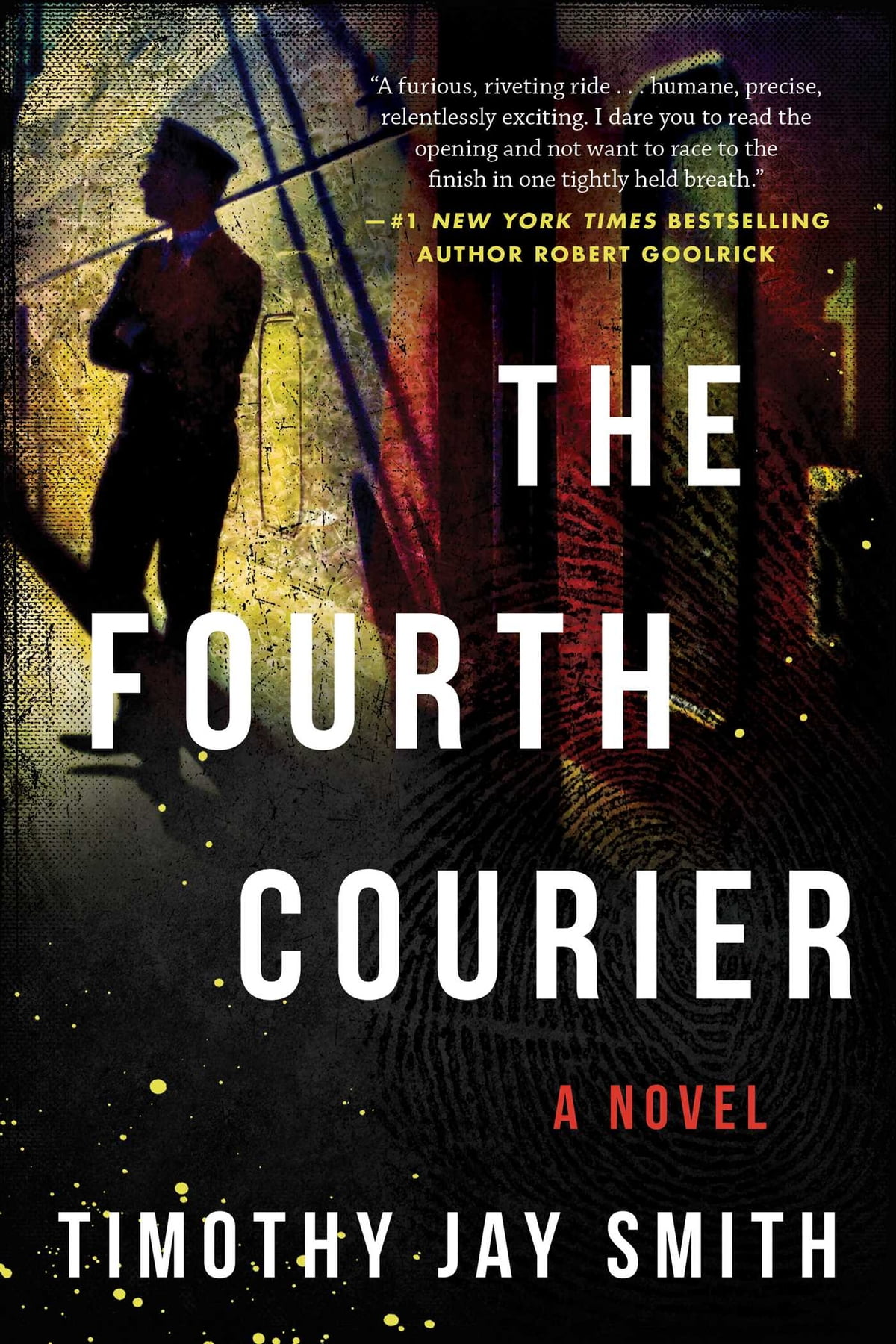
The Fourth Courier by Timothy Jay Smith
This is set in 1992 Warsaw, Poland. A Russian physicist who designed a portable atomic bomb has just disappeared, and others have been murdered who seem to have connections to the nuclear science. A straight white FBI agent and a gay Black CIA agent team up to try to find the scientist — and the bomb — before it’s too late.
More queer political thrillers:
11) Read a book with an asexual and/or aromantic main character.
Well, this one requires no interpretation!
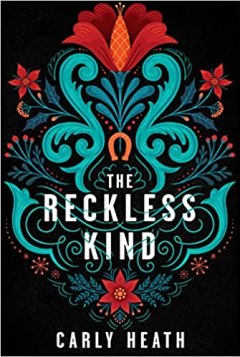
The Reckless Kind by Carly Heath
I will yell about this book any time I have an opportunity. It’s set in 1904 just outside of Norway, and follows three main characters, all of whom are queer and disabled and/or have mental health issues. (Asta is asexual, and possibly aromantic. Gunnar and Erland are dating.) They become friends through theater, then they become a found family after tragedy. There’s a horse race to save the family farm! I love this story to bits. Do look up trigger warnings before diving in, though, especially for ableism and violence/injury.
More asexual and/or aromantic books:
12) Read an entire poetry collection.
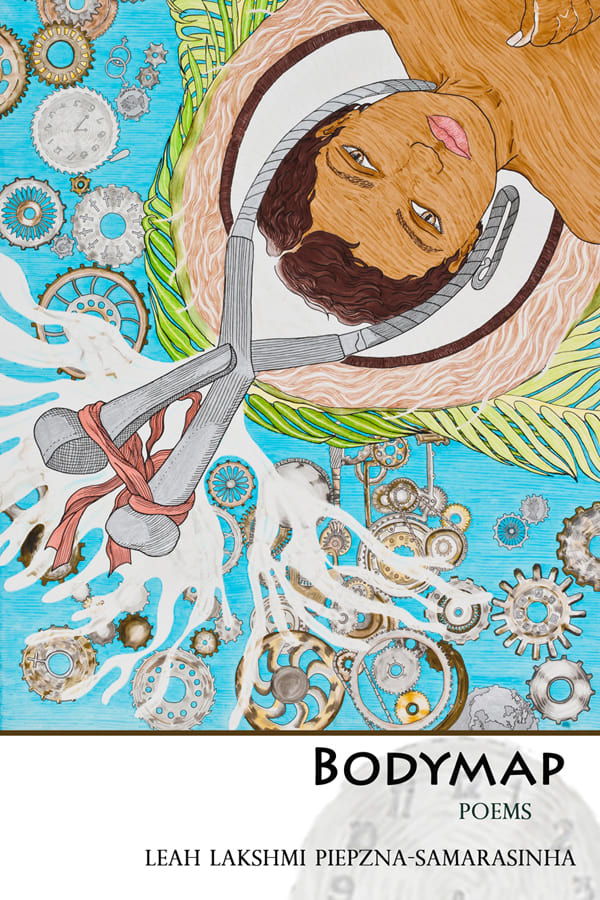
Bodymap by Leah Lakshmi Piepzna-Samarasinha
This is the sort of poetry that punches you in the gut. It’s accessible even for a poetry novice (like me), but it’s moving, thought-provoking, and passionate. Like all of their books, it discusses race and racism, disability and ableism, politics and everyday life. (I recently also read Care Work and loved that, too.) I highly recommend this one, even if I don’t feel qualified to talk about it.
More queer poetry:
13) Read an adventure story by a BIPOC author.
I wasn’t sure exactly how to define this one, because there are plenty of sci-fi or fantasy adventures, but does that “count” for this category? I decided to go with a few realistic adventures, a couple superhero stories, and a fantasy pirates book.
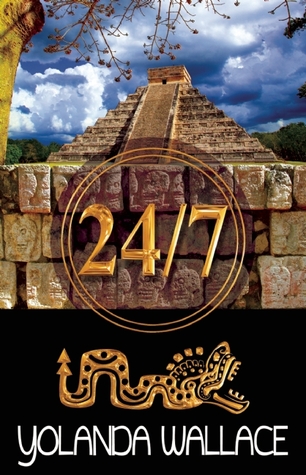
24/7 by Yolanda Wallace
This is part mystery/thriller, part romance, part procedural. Finn is a travel writer who has decided to stay at a lesbian resort. On a layover, she bumps into Luisa, and they spend a memorable hotel room night together. Then they part ways, as Luisa begins her job working for the Mexican Federal Police, trying to break apart a drug cartel. Soon, they find themselves unexpectedly thrown back together as the cartel overruns the resort.
More queer adventure stories by authors of color:
14) Read a book whose movie or TV adaptation you’ve seen (but haven’t read the book).
There’s lots of options for this one! It was difficult to narrow it down, so I left off Carol aka The Price of Salt by Patricia Highsmith for being too obvious.
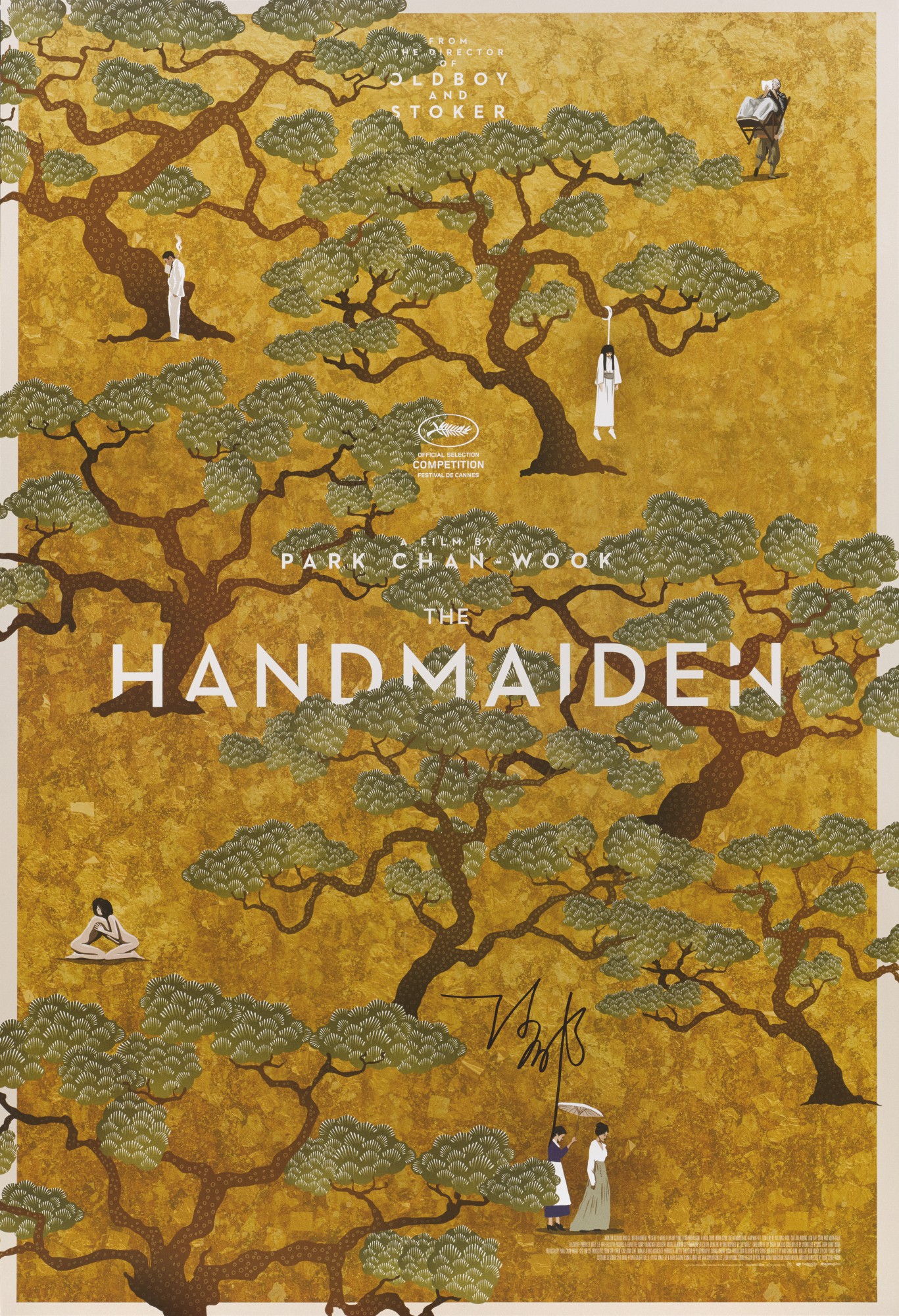
Fingersmith by Sarah Waters / The Handmaiden by Park Chan-Wook (movie)
Fingersmith is the best book I’ve ever read, and it’s actually been adapted twice: one by the BBC, and one reimagining by Park Chan-Wook. This adaptation moves the setting from Victorian England to Japan-occupied Korea. It’s gotten some criticism for supposedly having a “male gaze,” especially in the sex scenes, but I personally disagree. What I love about this adaptation is that it sparks a really interesting conversation with the book. They not only have different settings, but also different endings. I think it really adds something to an already amazing story.
More queer books that have been adapted:
15) Read a new-to-you literary magazine (print or digital).
I have to admit that any literary magazine would be new to me, because I haven’t read any before! Poking around online, though, it looks like there are quite a few interesting queer-centric lit mags to choose from. Here are some that looked the most intriguing!
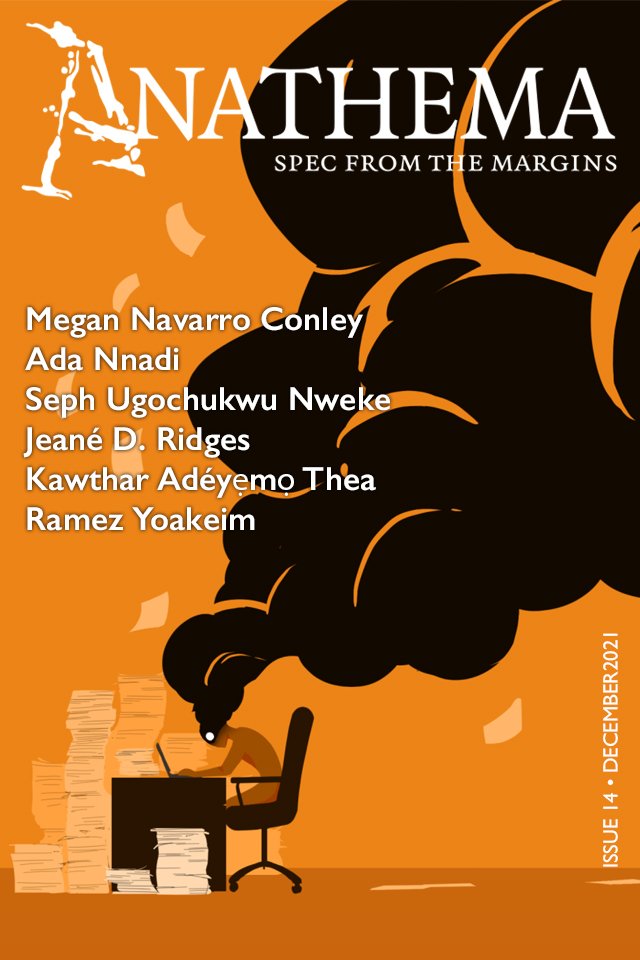
Anathema: Spec From the Margins
Anathema is an online speculative fiction (including SFF, horror, fabulism, and more) literary magazine that publishes three times a year. The stories are all by queer POC/Indigenous/Aboriginal creators. The covers alone are gorgeous, and I can’t wait to dive into some of these stories.
More queer literary magazines:
16) Read a book recommended by a friend with different reading tastes.
This is a task that I can’t really give recommendations for, because it’s unique to you! Hopefully you have a friend who is well-read in queer lit and can give you some recommendations. I’ve found that having a focus on sapphic stories has introduced me to all kinds of genres and formats, because I’m much more likely to try it out if I know there’s a queer main character.
Use this task to try out a genre that’s unfamiliar to you. Maybe you can read a mystery novel with a queer main character for the first time — did you know this was one of the first genres to include queer characters? Or dip a toe into the world of manga with a yuri, BL, or queer manga title.
If you don’t have well-read queer friends away from the keyboard, online friends definitely count. (We’re friends now if you’ve read this far. No take backs.) Ask on social media for queer book recs and pick one that you wouldn’t have read otherwise. I’d love to hear how it goes!
17) Read a memoir written by someone who is trans or nonbinary.
An already queer task! That makes this one a breeze. There are so many great trans or nonbinary memoirs to choose from, but here are just a few highlights.
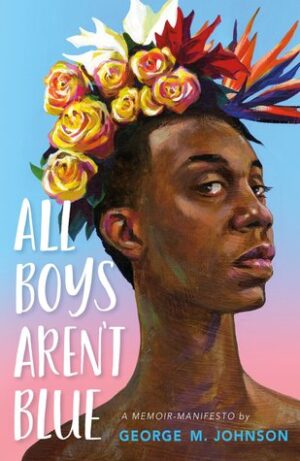
All Boys Aren’t Blue by George M. Johnson
Two of the books I’m recommending for this category, this one and Gender Queer, have been among the most challenged in the last year of increased censorship. Read them yourself to see the beautiful, important stories that young people are being denied. These essays explore Johnson’s childhood, along with advice to young people (especially Black queer and trans people) about surviving and growing in a world that can be hostile to them. Reading All Boys Aren’t Blue will make it obvious that this book is being willfully misinterpreted, because Johnson is so generous in their explanations of the ideas they’re exploring here.
18) Read a “Best _ Writing of the year” book for a topic and year of your choice.
I have to admit, I thought this challenge might get me, but I was able to find six year-specific all-queer anthologies! Let me know if you’re aware of any more, especially ones that are ongoing.
While these almost all include stories by authors of color, most of the editors are white (though the 1997 Best Lesbian Erotica of the Year is edited by Jewelle Gómez, and that sounds amazing).
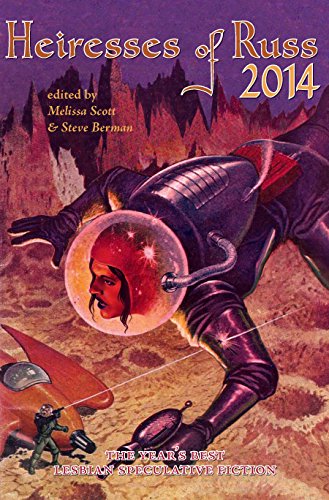
Heiresses of Russ: The Year’s Best Lesbian Speculative Fiction (2011-2016)
Did I pick this partly because of the cover? Of course. But this series is also edited by a legend in lesbian sci-fi, Melissa Scott, best known for Trouble and Her Friends. There are also stories from well-known authors like Zen Cho (2011), Ellen Kushner (2011), Amal El-Mohtar (2012), Nalo Hopkinson (2012), Jewelle Gomez (2013), Malinda Lo (2013), Ken Liu (2015), Darcie Little Badger (2015), Seanan McGuire (2015), and more. PLUS: they’re all only $1 each as ebooks!
More LGBTQ best ___ of the year anthologies:
19) Read a horror novel by a BIPOC author.
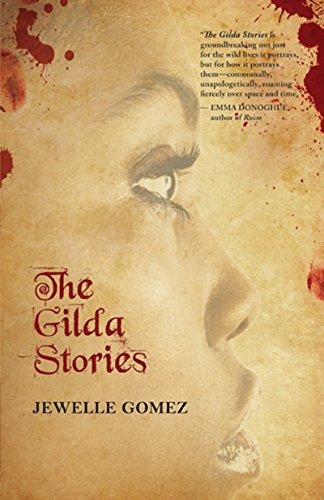
The Gilda Stories by Jewelle L. Gómez
I went back and forth a little bit about whether to include this title, because I don’t really think of it as horror — but vampires get a free pass into the horror genre, I think. This is a classic not just of lesbian literature, but of literature in general. It follows Gilda as an enslaved woman in 1850s Louisiana through her becoming a vampire and centuries of her undead life — ending in 2050! It’s a set of interrelated short stories, all in different time periods and settings. It explores racism and homophobia throughout time, and it’s a gorgeous, thought-provoking read.
More queer horror by BIPOC authors:
20) Read an award-winning book from the year you were born.
I can’t give a rec for each year you were all born, but I can give you some awards to check out!
Of course, the easy answer is Lambda Literary. It’s been going since 1988, and they have an previous winners page that allows you to search by year and category! So as a 1990s baby, I might read New, Improved Dykes To Watch Out For by Alison Bechdel (Humor) or Her by Cherry Muhanji (Lesbian Debut Fiction).
Another option is the Stonewall Book Awards, which have been given out by the American Library Association since 1971. The very first award was given to Patience and Sarah by Isabel Miller, which is a favorite of mine! A recent award-winner was Cantoras by Carolina De Robertis — which, if you read out loud to your 2020 baby, totally counts.
The Triangle Awards also began in 1988. Unfortunately, you have to click through each individual award to see previous winners: there isn’t a list of all of them in one place.
The Golden Crown Literary Awards would only be an option for young teens: it started in 2005.
If you were born before 1971, this will be a tricky challenge, unfortunately. Queer books have only started getting public recognition in the last few decades. One option may be picking another significant date (your graduation year, wedding anniversary, etc) instead.
21) Read a queer retelling of a classic of the canon, fairy tale, folklore, or myth.
An already queer challenge! There are so many fantastic queer retellings out there — especially of fairy tales — that I had trouble narrowing it down, but here are just a handful.
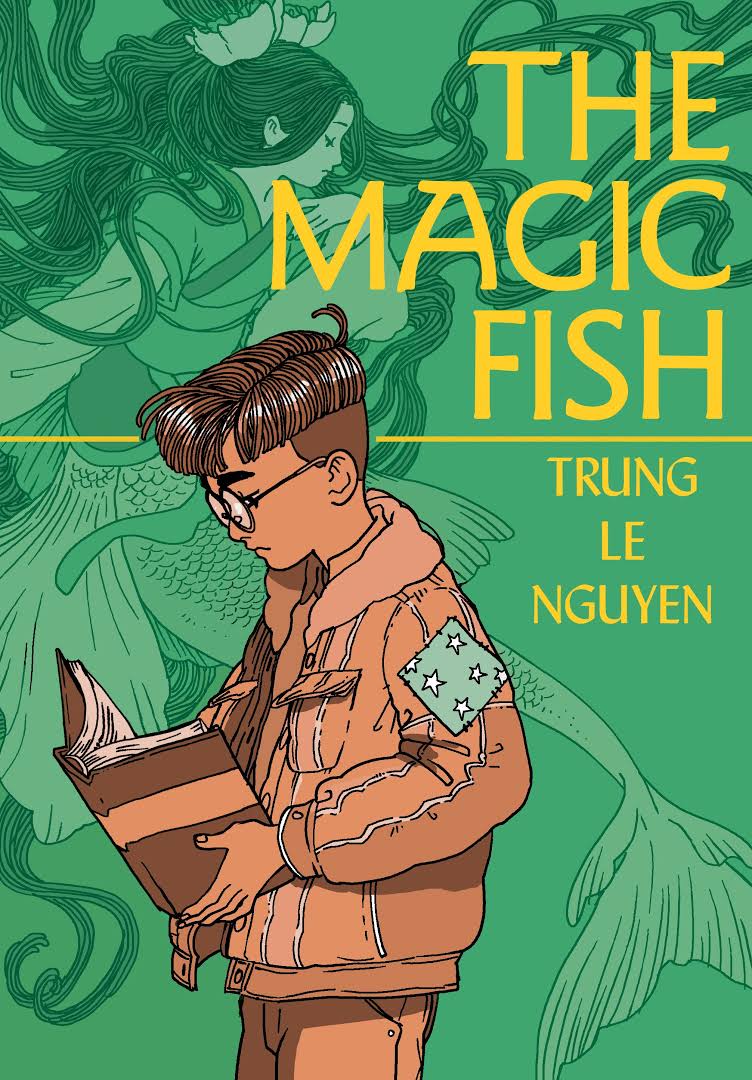
The Magic Fish by Trung Le Nguyen (“The Little Mermaid”)
This is a Book Riot favorite, and it won the 2021 Harvey Award for Book of the Year. It also appeared on the best books of the year lists in Publishers Weekly, Kirkus Reviews, the New York Public Library, and more. It’s a YA graphic novel about a Vietnamese American teen trying to come out to his mom. There’s also a legendary tweet from the author: “People wanna ban my book for only gay reasons, nobody ever ever mentions the cannibalism 😔”
More queer retellings:
For even more, check out 10 Great Queer Retellings of Classics and 30 Must-Read Queer Fairy Tale Retellings.
22) Read a history about a period you know little about.
There are so many different options to choose from here, especially because queer history is so suppressed that the average reader doesn’t know about almost any of it! I left off the books about the Stonewall riots and the AIDS epidemic, since those are the most known periods of queer history, but they’re still well worth reading. I also tried to stick to books about a particular period of history, instead of a general overview.
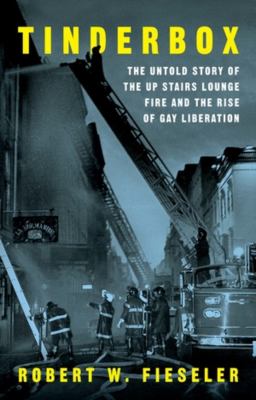
Tinderbox: The Untold Story of the Up Stairs Lounge Fire and the Rise of Gay Liberation by Robert W. Fieseler
One lesser known event in queer American history is the 1973 fire that burned down the Up Stairs Lounge in New Orleans. It was set by an arsonist, killing dozens of people, and it devastated the local gay community. The mourning survivors reeled in the aftermath, when families decided not to claim bodies, and Catholic churches refused burials. This further pain was the driving force behind a wave of activism that demanded gay liberation and basic rights.
More LGBTQ history books:
23) Read a book by a disabled author.
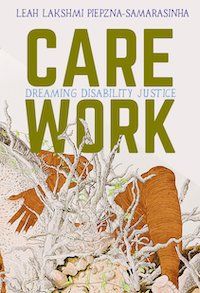
Care Work by Leah Lakshmi Piepzna-Samarasinha
There are lots of great nonfiction books and memoirs that focus on disability that are by disabled authors, but that isn’t the only option for this prompt. You can also read any book by disabled author, including fiction and poetry. Bodymap is my favorite poetry collection, as I mentioned earlier, with cutting and insightful poems that address sexuality, gender, race, and disability in a readable and memorable style. In Care Work, Piepzna-Samarasinha writes about disability justice and networks of support in thought-provoking essays.
More queer books by disabled authors:
24) Pick a challenge from any of the previous years’ challenges to repeat!
There are so many options for previous challenges that are already queer or can easily be adapted to be queer. I’ve selected one queer challenge from each year of the Read Harder challenge, but there are lots more to choose from.
- 2021: Read a historical fiction with a POC or LGBTQ+ protagonist [Or why not both?]
- 2020: Read a debut novel by a queer author
- 2019: Read a comic by an LGBTQIA creator
- 2018: Read a mystery by a person of color or LGBTQ+ author
- 2017: Read an LGBTQ+ romance novel
- 2016: Read a book by a trans author
- 2015: Read a book by or about someone LGBTQ [a gimme!]
There’s still enough time to do all of these challenges if you do one a week! Good luck, happy reading, and happy Pride!




